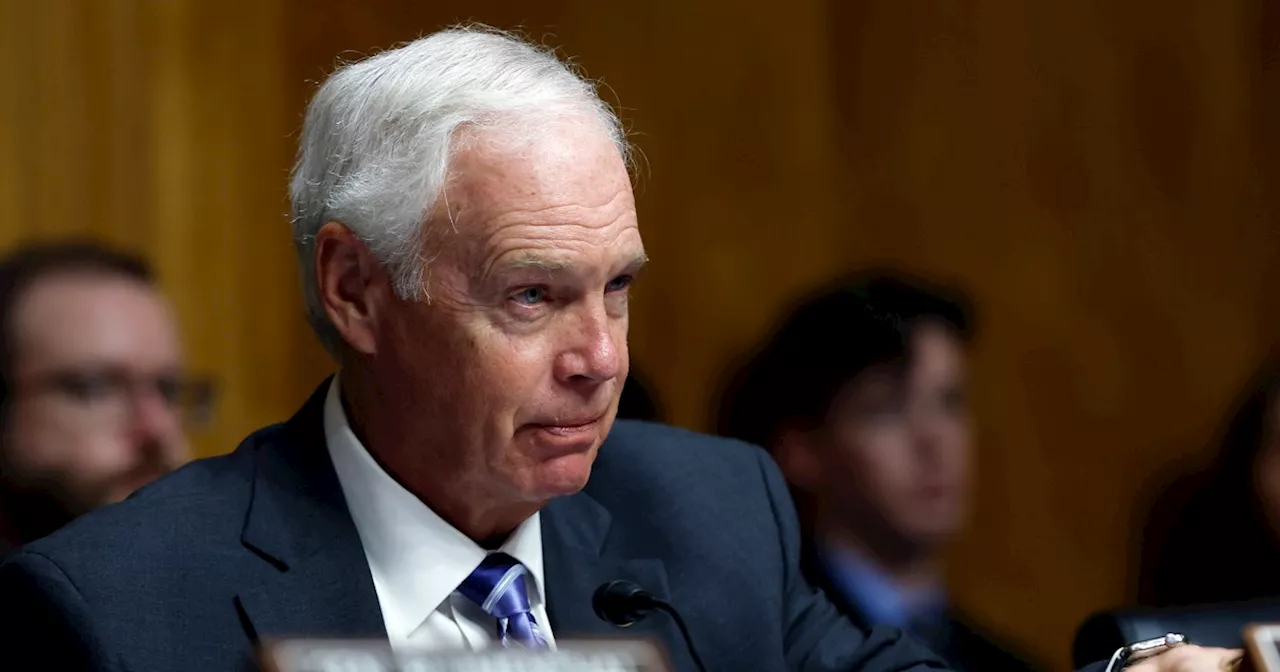This article criticizes Donald Trump's granting of pardons to January 6th insurrectionists, calling it an abuse of power and a shameful display by congressional Republicans who failed to adequately condemn the act. The author argues that the pardons embolden radicals and extremists, and that the GOP's weak response only exacerbates the scandal.
Just hours after his second presidential inauguration, Donald Trump kept his worst campaign promise: The Republican, taking a needlessly maximalist approach, issued roughly 1,500 pardons and commuted the sentences of 14 January 6th criminals, including violent felons who clashed with police officers.
Pressed a day later for some kind of justification for putting violent criminals back on American streets, the new president falsely claimed that they’d been “treated unbelievably poorly,” adding that as far as he’s concerned, “murderers don’t even go to jail in this country.” To the extent that reality still has meaning, Trump’s defense fell far short. For one thing, murderers are, in fact, routinely incarcerated in the United States. For another, his pitch wasn’t as persuasive as he might’ve hoped: The Republican’s line was rooted in the idea that if murderers go free, there’s no harm in letting other violent felons go free, too. Is that a message that will help voters, some of whom were persuaded by Candidate Trump's 'law and order' message, feel safer? But stepping back, the question wasn’t what Trump was going to say about his own abuse of his pardon power. It was obvious that the president was going to concoct some kind of absurd rationalization. The more salient question was what congressional Republicans would say. As The New York Times reported, most GOP lawmakers struggled to defend the indefensible. It might seem like ancient history, but when Trump first started pushing the idea of January 6th pardons in the fall of 2022 — before he formally launched his bid for a second term — there was some meaningful GOP pushback against the proposal, which seemed quite radical at the time. But in the months and years that followed, as Trump’s stranglehold over Republicans intensified, and the GOP at the institutional level became more pitiful, it became inevitable that most party leaders and officials would simply go along with their party’s president’s abuses. To be sure, there were exceptions, and Republicans who had the wherewithal to publicly disagree with the January 6th pardons will likely be applauded by history. But by any fair measure, they were outnumbered by their more cowardly partisan brethren. My personal favorite was the reaction from Republican Sen. Ron Johnson of Wisconsin, who said the pardons were “absolutely justified,” only to add moments later that he hadn’t “seen the details” of the pardons. But perhaps most notable of all were the GOP voices who tried to argue that the pardons were a thing of the past. For example, Republican Sen. John Thune of South Dakota, his party’s new Senate majority leader, said in response to questions about the pardons, “We’re looking at the future, not the past.” Republican Sen. Kevin Cramer of North Dakota, similarly added, “I’m ready to move forward.” But I’m reminded of William Faulkner’s line, “The past is never dead. It’s not even past.” We’re not talking about events from generations ago. Trump pardoned politically aligned violent felons two days ago. These criminals are free right now. Their victims and the people who helped with their prosecutions are afraid today and will remain scared in the days, weeks, and months to follow. The emboldening effect on radicals and extremists is immediate. The president’s willingness to abuse his pardon is a scandal, but just as importantly, it’s an ongoing scandal, which makes the weak Republican reactions that much more pathetic
DONALD TRUMP JANUARY 6TH PARDONS INSURRECTION REPUBLICAN PARTY ABUSE OF POWER POLITICS
United States Latest News, United States Headlines
Similar News:You can also read news stories similar to this one that we have collected from other news sources.
 Acosta Asks GOP: Why Not Reject Trump After January 6th?CNN anchor Jim Acosta questions why the Republican Party didn't reject Donald Trump after the January 6th Capitol attack.
Acosta Asks GOP: Why Not Reject Trump After January 6th?CNN anchor Jim Acosta questions why the Republican Party didn't reject Donald Trump after the January 6th Capitol attack.
Read more »
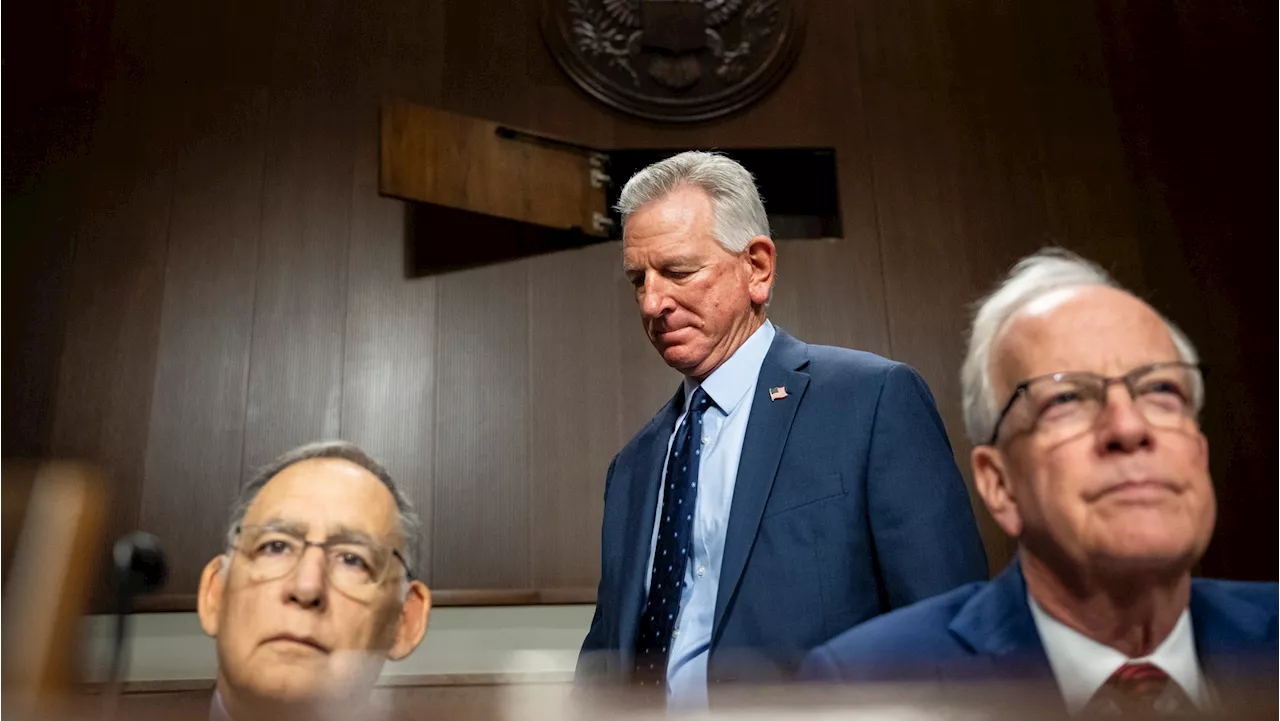 GOP Struggles to Justify Trump's Blanket Pardons for January 6th RiotersMany Republicans who previously condemned the January 6th Capitol riot are now struggling to justify former President Trump's blanket pardons for over 1,500 individuals convicted of offenses related to the event. Some senators, like John Thune and Tommy Tuberville, are downplaying the pardons or feigning ignorance about their scope, while others, like Susan Collins, express disapproval without condemning Trump directly. Several GOP senators attempt to deflect criticism by pointing to President Biden's use of the pardon power to protect his family and administration members.
GOP Struggles to Justify Trump's Blanket Pardons for January 6th RiotersMany Republicans who previously condemned the January 6th Capitol riot are now struggling to justify former President Trump's blanket pardons for over 1,500 individuals convicted of offenses related to the event. Some senators, like John Thune and Tommy Tuberville, are downplaying the pardons or feigning ignorance about their scope, while others, like Susan Collins, express disapproval without condemning Trump directly. Several GOP senators attempt to deflect criticism by pointing to President Biden's use of the pardon power to protect his family and administration members.
Read more »
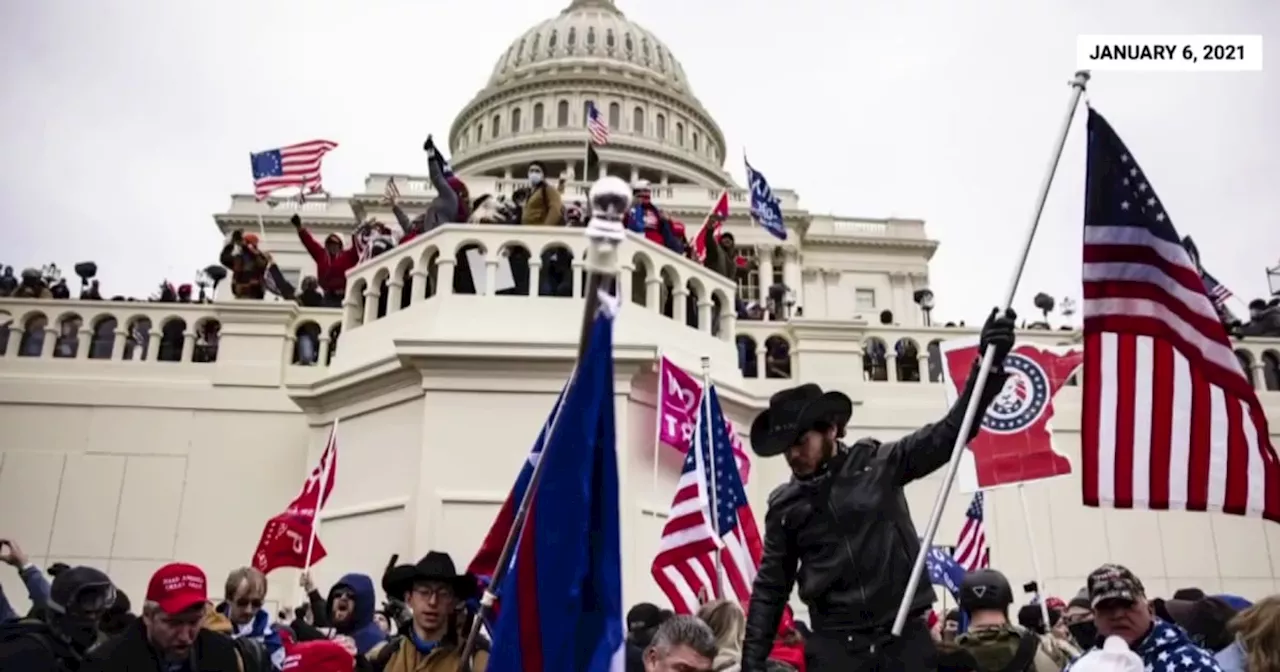 GOP's Strategic Obfuscation of the January 6th InsurrectionMSNBC legal analyst Charles Coleman Jr. discusses how Republican Party members have downplayed and distorted the events of January 6th, 2021, and why it's crucial to continue discussing this pivotal moment in American history.
GOP's Strategic Obfuscation of the January 6th InsurrectionMSNBC legal analyst Charles Coleman Jr. discusses how Republican Party members have downplayed and distorted the events of January 6th, 2021, and why it's crucial to continue discussing this pivotal moment in American history.
Read more »
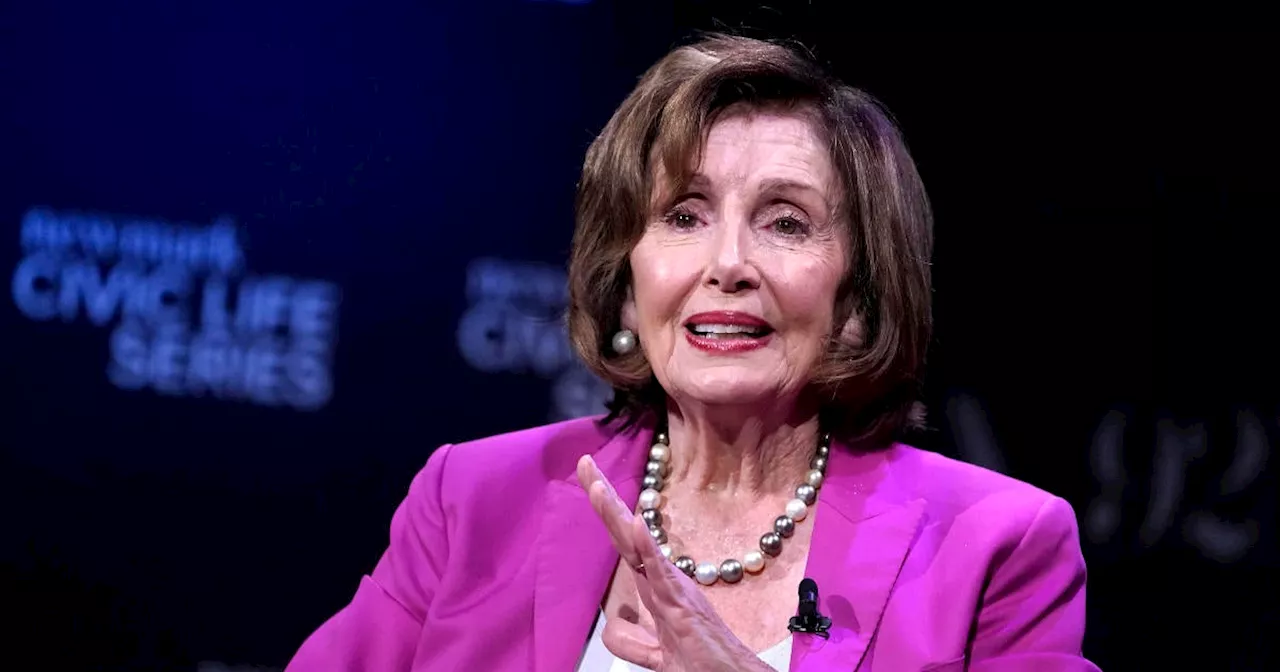 Nancy Pelosi on January 6th and Donald Trump's Continued Election ClaimsHouse Speaker Emerita Nancy Pelosi discusses the upcoming certification of the 2024 election and the continued efforts to overturn the 2020 election results. She addresses the public's perception of January 6th and Donald Trump's recent actions.
Nancy Pelosi on January 6th and Donald Trump's Continued Election ClaimsHouse Speaker Emerita Nancy Pelosi discusses the upcoming certification of the 2024 election and the continued efforts to overturn the 2020 election results. She addresses the public's perception of January 6th and Donald Trump's recent actions.
Read more »
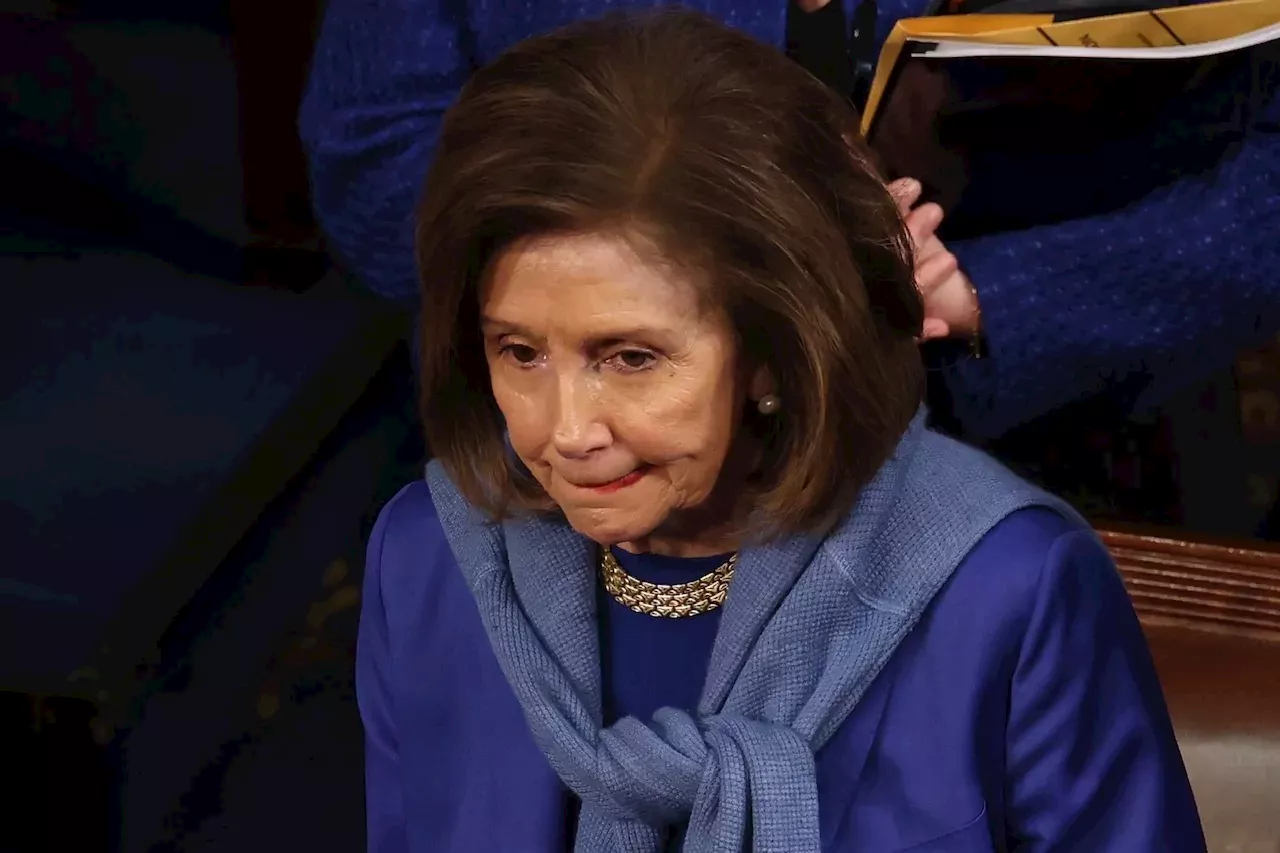 Trump's Pardon Promises Spark Debate Amidst January 6th AftermathFormer President Trump's pledge to pardon individuals charged in connection with the January 6th Capitol riot has ignited controversy and speculation about the fate of those cases. House Speaker Nancy Pelosi expressed concern, emphasizing the severity of the attacks and highlighting the ongoing repercussions faced by her husband, Paul Pelosi, who was assaulted by a home intruder in 2022.
Trump's Pardon Promises Spark Debate Amidst January 6th AftermathFormer President Trump's pledge to pardon individuals charged in connection with the January 6th Capitol riot has ignited controversy and speculation about the fate of those cases. House Speaker Nancy Pelosi expressed concern, emphasizing the severity of the attacks and highlighting the ongoing repercussions faced by her husband, Paul Pelosi, who was assaulted by a home intruder in 2022.
Read more »
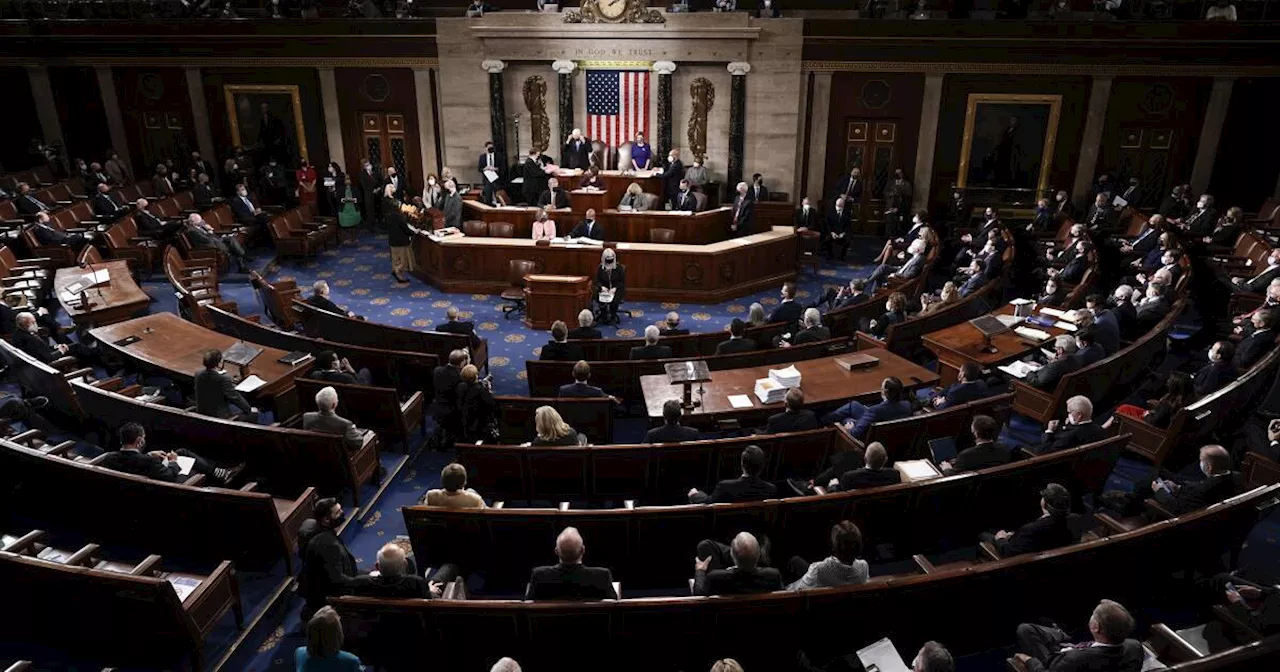 Trump's Return to Power Casts Legacy of January 6th Over CertificationAs Congress gathers amid a blizzard to certify the election of President-elect Donald Trump, the legacy of January 6th looms over the process. Trump, the candidate who sought to overturn the previous election, has now won legitimately and returns to power. This time, no violence, protests, or procedural objections are expected. High-level Republicans who challenged the 2020 election results when Trump lost to Joe Biden have no qualms this year after Trump defeated Vice President Kamala Harris. Democrats, despite their frustration with Trump's Electoral College victory, accept the will of the American voters. Even a massive snowstorm is not expected to disrupt the January 6th ceremony, established by law to certify the vote.
Trump's Return to Power Casts Legacy of January 6th Over CertificationAs Congress gathers amid a blizzard to certify the election of President-elect Donald Trump, the legacy of January 6th looms over the process. Trump, the candidate who sought to overturn the previous election, has now won legitimately and returns to power. This time, no violence, protests, or procedural objections are expected. High-level Republicans who challenged the 2020 election results when Trump lost to Joe Biden have no qualms this year after Trump defeated Vice President Kamala Harris. Democrats, despite their frustration with Trump's Electoral College victory, accept the will of the American voters. Even a massive snowstorm is not expected to disrupt the January 6th ceremony, established by law to certify the vote.
Read more »
